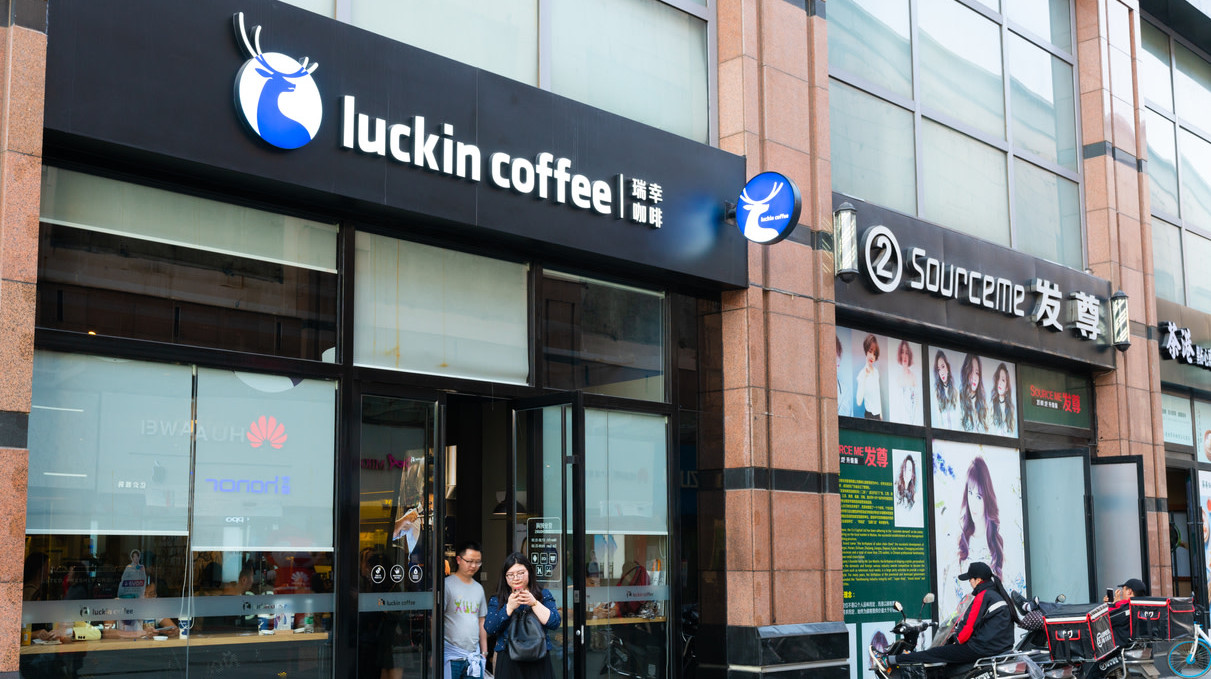Starbucks Has Finally Met Its Match—at Least In China
Luckin Coffee was founded in Beijing in October 2017 with the express goal of surpassing Starbucks in China—Starbucks' second largest international market—by the end of 2019. This month, after just 26 months in business, it finally made it, just under the wire.
The firm Thinknum Alternative Data, a consolidator of online corporate data, reports that the two coffee companies drew even in early November, six months after Luckin stock began trading publicly on NASDAQ, with 4,200 stores each. But since then, Luckin opened nearly 700 cafes, while Starbucks opened a mere 100. Luckin now has 4,910 locations in China to Starbucks' 4,300.
Thinknum has also provided an interactive map that showed the expansion of both chains throughout China throughout 2019. Initially, it appeared that Luckin was concentrating on Beijing and China's east coast where Starbucks was already firmly entrenched; in recent months, it's begun to open locations in parts of central and southern China where Starbucks has yet to make an appearance.
Luckin's website is almost entirely in Chinese, but according to Quartz, its business model is based largely on convenience. ("Some have argued," Mary Hui writes, "that Luckin is as much a tech company (paywall) as it is a drinks business. Luckin appears to share that belief—its prospectus mentioned the word 'technology' more than five times as often than the word 'bean.'") Customers order via an app and then either pick up their coffee at a Luckin or have it delivered; in major cities, Luckin promises to get its coffee out the door within half an hour. The vast majority of Luckin locations—90%—are pickup only. In response, The Wall Street Journal reported, Starbucks has been trying to beef up its own delivery business.
Luckin coffee itself is said to be unremarkable. A group of Chinese coffee bloggers who conducted an exhaustive taste taste were not particularly impressed. Luckin has brought in Hidenori Izaki, the 2014 World Barista Champion, as a consultant; it is also expanding its tea offerings.
The Wall Street Journal reported that in the third quarter of 2019, Luckin posted revenue of the equivalent of $215.7 million, a sixfold increase over the same period in 2018. Its losses increased, too, but not nearly to the same degree.
What will happen next? In China, a country that's addicted to building and expanding faster than an American can scarcely believe is possible, who knows? Perhaps in the near future, we'll see a Luckin Coffee on every corner.
